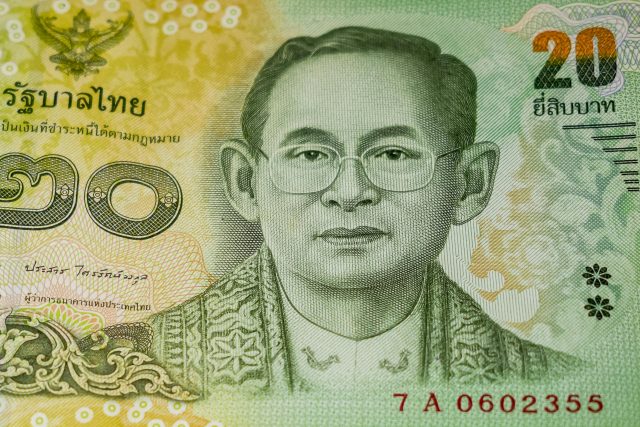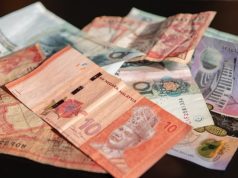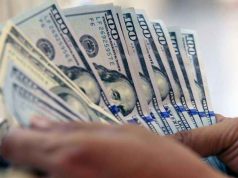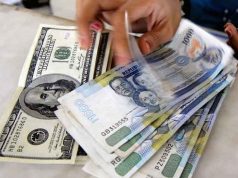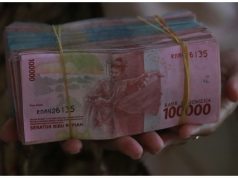- Thai baht slips as much as 0.5%
- Singapore dollar caps gains after easing inflation print
- Manila stocks add 1%
Thailand’s baht slipped on Monday as a weakness in gold prices offset a rally in developing currencies due to a slip in the dollar, while Singapore’s currency pared gains after its inflation numbers pointed towards room for policy easing.
The baht <THB=TH> gained as much as 0.4% before sliding down 0.2% against the greenback, tracking a more-than-1% drop in bullion prices and on month-end profit taking from importers. Bangkok equities were trading flat.
“Usually when people in the market buy gold on dip, they have to convert from Thai baht into U.S. dollars to buy gold… that typically leads to weakness in the Thai baht and that’s exactly what we are seeing so far this morning,” said Poon Panichpibool, markets strategist at Krung Thai Bank.
“From Friday until early this morning, the Thai baht appreciated a little bit below the 34.5-level. That kind of triggered some buying interest from importers and there could be some profit-taking position as well.”
Other currencies in Asian countries gained, reflecting the dip in the U.S. dollar after U.S. President-elect Donald Trump picked hedge-fund manager Scott Bessent, who is expected to push a more phased implementation of trade tariffs, to run the U.S. Treasury.
The Malaysian ringgit <MYR=>, South Korean won <KRW=KFTC> and Taiwan dollar added between 0.3% and 0.5%.
The Singapore dollar <SGD=>, which gained as much as 0.3% during the day, was last trading 0.1% higher after the city-state’s core inflation in October slowed to the weakest pace since December 2021.
This leaves room for monetary policy easing at the central bank’s next meeting in January, said Maybank economist Chua Hak Bin.
Singapore shares gained 0.1% as well.
Stock markets in emerging Asia were mostly upbeat on Monday, with equities in the Philippines <.PSI> and Indonesia <.JKSE> rallying 1% and 1.6%, respectively.
Manila on Monday began trading interest-rate swaps, a move the central bank announced last week to enhance liquidity and trading in the bond market, crucial for attracting foreign investments.
Equities in Thailand <.SETI> were unchanged while shares in Taiwan <.TWII>, South Korea <.KS11> and Malaysia <.KLSE> added 0.2%, 1.3% and 1% respectively.
HIGHLIGHTS:
** South Korea’s Yoon, Malaysia’s Anwar agree to cooperate in defence, minerals
** Trump Treasury pick Scott Bessent to prioritize tax cuts, WSJ reports
** China c.bank injects $124 bln into banking system via one-year policy loans
| Asian stocks and currencies as of 0650 GMT | ||||||
| COUNTRY | FX RIC | FX DAILY % | FX YTD % | INDEX | STOCKS DAILY % | STOCKS YTD % |
| Japan | <JPY=> | +0.25 | -8.61 | <.N225> | 1.35 | 16.56 |
| China | <CNY=CFXS> | +0.05 | -2.02 | <.SSEC> | -0.43 | 9.36 |
| India | <INR=IN> | +0.20 | -1.27 | <.NSEI> | 1.57 | 11.74 |
| Indonesia | <IDR=> | +0.09 | -2.90 | <.JKSE> | 1.58 | 0.50 |
| Malaysia | <MYR=> | +0.25 | +3.05 | <.KLSE> | 1.02 | 10.41 |
| Philippines | <PHP=> | +0.05 | -6.01 | <.PSI> | 1.03 | 6.20 |
| S.Korea | <KRW=KFTC> | +0.30 | -8.14 | <.KS11> | 1.32 | -4.55 |
| Singapore | <SGD=> | +0.09 | -1.93 | <.STI> | 0.09 | 15.71 |
| Taiwan | <TWD=TP> | +0.46 | -5.27 | <.TWII> | 0.19 | 27.98 |
| Thailand | <THB=TH> | -0.03 | -1.04 | <.SETI> | 0.03 | 2.19 |
—Reporting by Shivangi Lahiri in Bengaluru; Editing by Janane Venkatraman

